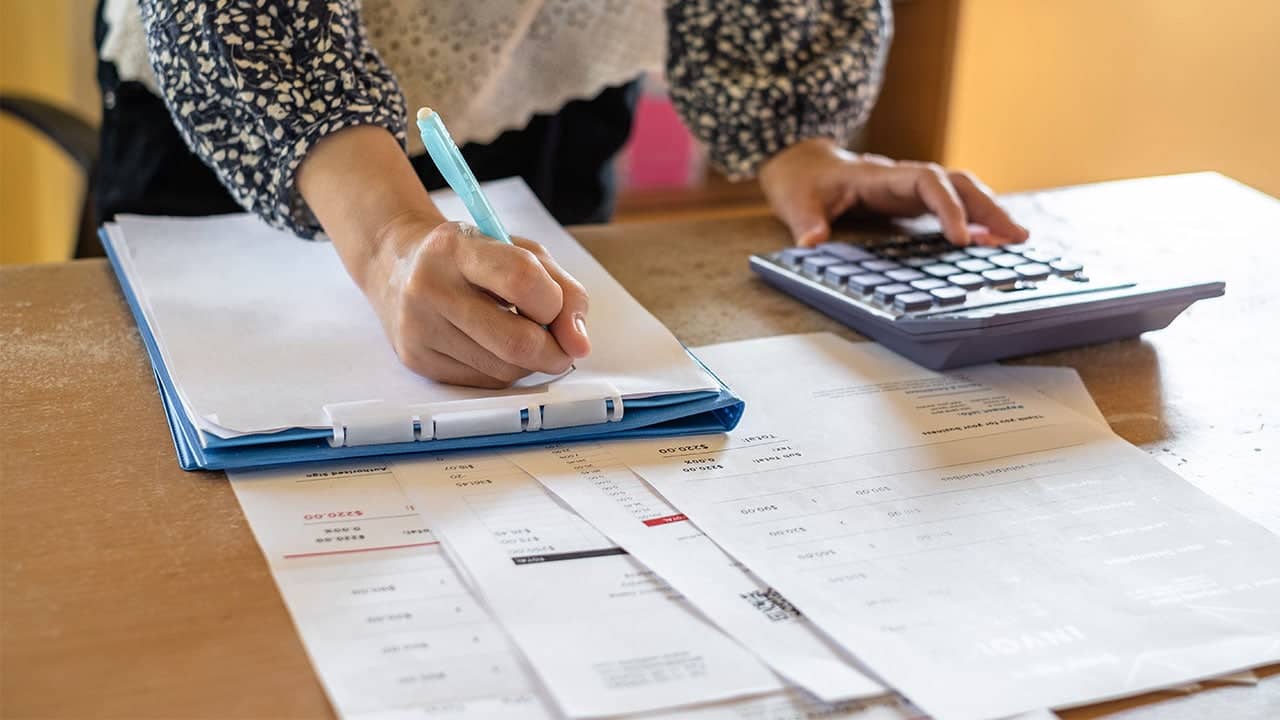Steps To Take Before Getting A Consolidation Loan
When debts accumulate, consolidating them is one way to address the situation. Debt consolidation and debt consolidation loans are terms sometimes used interchangeably. UK consumers consolidate their debt by taking out a loan to repay existing unsecured debts.
This debt management method is typically used when a small to moderate amount of debt has been accumulated and the debtor can afford to repay the balance. Though it can be the solution to debt issues, consumers should be well-informed before taking a consolidation loan.
Debt consolidation & debt consolidation loans can be a great way of reducing your monthly repayments into one lower affordable amount. What are your debt consolidation options? Fill out the form today to find out how we can help you.
⏱ Get A Free No Obligation Debt Assessment:
Please fill out this form and we will get in touch with you shortly.
A debt consolidation loan is one of many ways to handle past-due balances on unsecured debt. Before deciding to take this loan, consumers in debt should attempt to make new repayment arrangements with creditors. They should also verify that they are using existing credit efficiently. A mortgage extension, personal loan, overdraft, store card, or credit card may already be available to repay past-due balances. If any of this financing has more favourable terms and conditions, it should be considered.
Friends and Family?
Friends or relatives may be willing to lend the money needed at an interest rate lower than the typical consolidation loan offers. A new personal loan from a bank or building society is another option that may carry a lower rate of interest. Consumers who are not familiar with the alternatives or who lack complete information about each one should contact one of our debt management professionals. This expert will conduct an independent and impartial financial review and recommend solutions.
Shopping around for the best loan terms saves money. Prospective borrowers should read the fine print and make sure they understand loan terms and conditions. They should create a budget and ensure that they can afford the payments required throughout the term of the loan.
In addition to verifying the monthly payment amount, prospective borrowers should inquire about the length of the loan and how much will be repaid in total. They should also confirm the interest rate and whether this is fixed or variable.
The benefits realized by repaying this loan early are offset by any early payoff costs or penalties, so consumers should inquire about these. They should also ask whether a missed payment will incur a penalty and if so, how much. If the loan will be secured against the home, the prospective borrower should learn about the consequences of falling behind with repayments.
If insurance is offered with the loan, the consumer should decide whether it is necessary, have a full understanding of the terms, and verify that a claim may be taken on it.
Some lenders pressure consumers to borrow more money than required to repay existing debts. Consumers should be wary of this and only take a larger loan if they really need the money and will be able to repay it. Once a loan is arranged, the borrower should adhere to the personal budget to ensure that debt does not reaccumulate. Many people go as far as cutting up credit cards to keep from using them.
Benefits Of Debt Consolidation And Debt Consolidation Loans
A consolidation loan may be the answer to a troubling financial situation. The interest rate is usually lower than short-term and unsecured financing, making this a less expensive solution. Monthly debt payments can be decreased by taking a consolidation loan with a longer-term. This makes debt repayment more affordable and increases disposable income. Consumers are able to repay their debts without sacrificing their lifestyle.
With a loan, the borrower knows when the debt will be repaid and only needs to deal with one creditor. The loan payoff date serves as a motivator, encouraging the borrower to keep up with loan payments and work toward a debt-free life. Having only one payment to make each month streamlines financial management. This can prevent people from falling behind on debt payments that could lead their credit rating to decline.
Drawbacks of Debt Consolidation And Debt Consolidation Loans
Consumers should weigh the potential negative aspects of a consolidation loan against the positive ones. By extending the repayment term for debts through a longer loan, an individual will make payments for a longer period and pay more overall. This loan carries a rate of interest, which could be quite high if the borrower has a poor credit rating. In addition to interest charges, there are usually charges to establish a consolidation loan.

Debtors with low credit scores may only qualify for a loan secured by the home. This financing will place the property at risk of repossession should the borrower fall behind on monthly payments. When individuals owe money to several creditors, it may be easier to renegotiate repayment terms with each. Repaying these debts with a single loan puts all money due to one place. If the borrower encounters financial difficulties, it may be difficult to arrange a new repayment term with this single creditor.
If the loan does not cover all debts, payments for these balances must continue while making the loan payments. This can place a large financial burden on the individual, making it difficult to stay current with money owed. Defaulting on a consolidation loan has consequences including additional interest payments, late charges, a declining credit score, and collection activities.
A loan calculator can be used to determine whether this financing is affordable. Our free online calculator allows consumers to model various loan scenarios to find the best one for their needs and income.
When To Explore Debt Consolidation
Nearly everyone has some form of debt but many people are able to manage this with their income. Unfortunately, too many others think they have the situation under control but do not. If you cannot get through the day without using a credit card or borrowing money, it is time to get help.
Struggling to make loan or credit card payments or pay bills is another indicator of financial problems. If you feel like bills or debts are weighing you down or you are unsure of how to repay what is owed, seek advice from one of our professionals. If creditors have already contacted you regarding payments or unpaid bills, it is imperative that you get free professional debt help immediately.
While many people wait too long to get assistance with debt, others think their situation is worse than it is. A consolidation loan may be all that is needed to repay debts and establish a positive financial future. By helping consumers identify the severity of their financial issues, debt experts create a clear and realistic picture.
They then explain various ways to handle debts. In the process, these professionals help consumers develop a budget and eliminate unnecessary expenses. The result is a comprehensive financial picture and a money management plan.
Important Factors Regarding Consolidation Loans
UK law requires firms that lend money to consumers to hold a license from the Office of Fair Trading (OFT). Therefore, prospective borrowers should check with the OFT to verify that the lender is licensed. Illegal lenders, also called loan sharks, should be avoided because these can cause consumers much legal and financial misery. Lenders may not legally offer credit to UK residents under 18 and those who do provide it should be reported to the local Trading Standards.
When consumers borrow money, they have rights. These include receiving information regarding the loan, provided on a standard Pre-Contract Credit Information Form. This standard document makes it easier to compare loans from different providers. A credit agreement should always be clearly explained by a lender. The prospective borrower is entitled to ask questions and is not under any obligation to sign a loan agreement until all questions have been satisfactorily answered.
These loans are available to many consumers in the UK, including those who do not own property. A loan unsecured by property or another asset usually carries a higher interest rate than a secured loan. However, this can be counteracted by extending the repayment term of the loan. Most consumers are able to find a reasonable interest rate when they compare loans. Our experts will help by putting individuals in touch with the best lenders.
A debt consolidation loan differs from a debt consolidation mortgage. When using a mortgage for debt consolidation, a homeowner takes out a new mortgage that is large enough to repay both the existing mortgage balance and all unsecured debts, resulting in one monthly mortgage payment.
A secured or unsecured debt consolidation loan involves borrowing enough money to repay unsecured debts. The original debts are immediately paid off, the loan is repaid through monthly instalment payments, and any existing mortgage is not affected.
According to some reports, personal debt in the UK increases by £1 million every 8.5 minutes. There is no indication that this trend will change, making debt consolidation and debt consolidation loans important weapons in the war for financial freedom. People can use a loan to repay their unsecured debts and make a single monthly payment for a designated period. Once they have repaid this loan, they will be debt-free.


